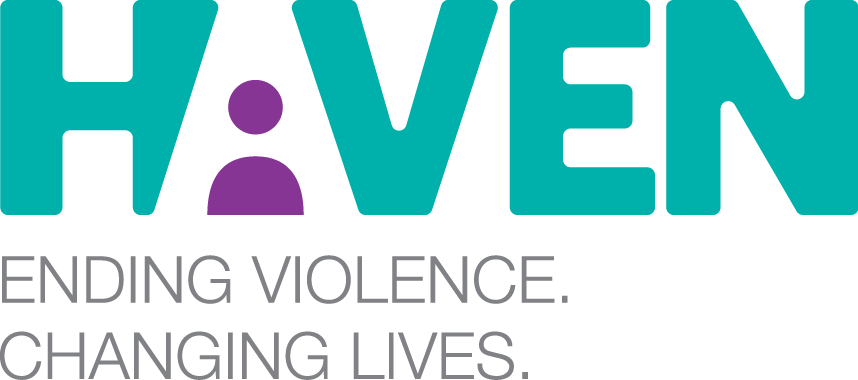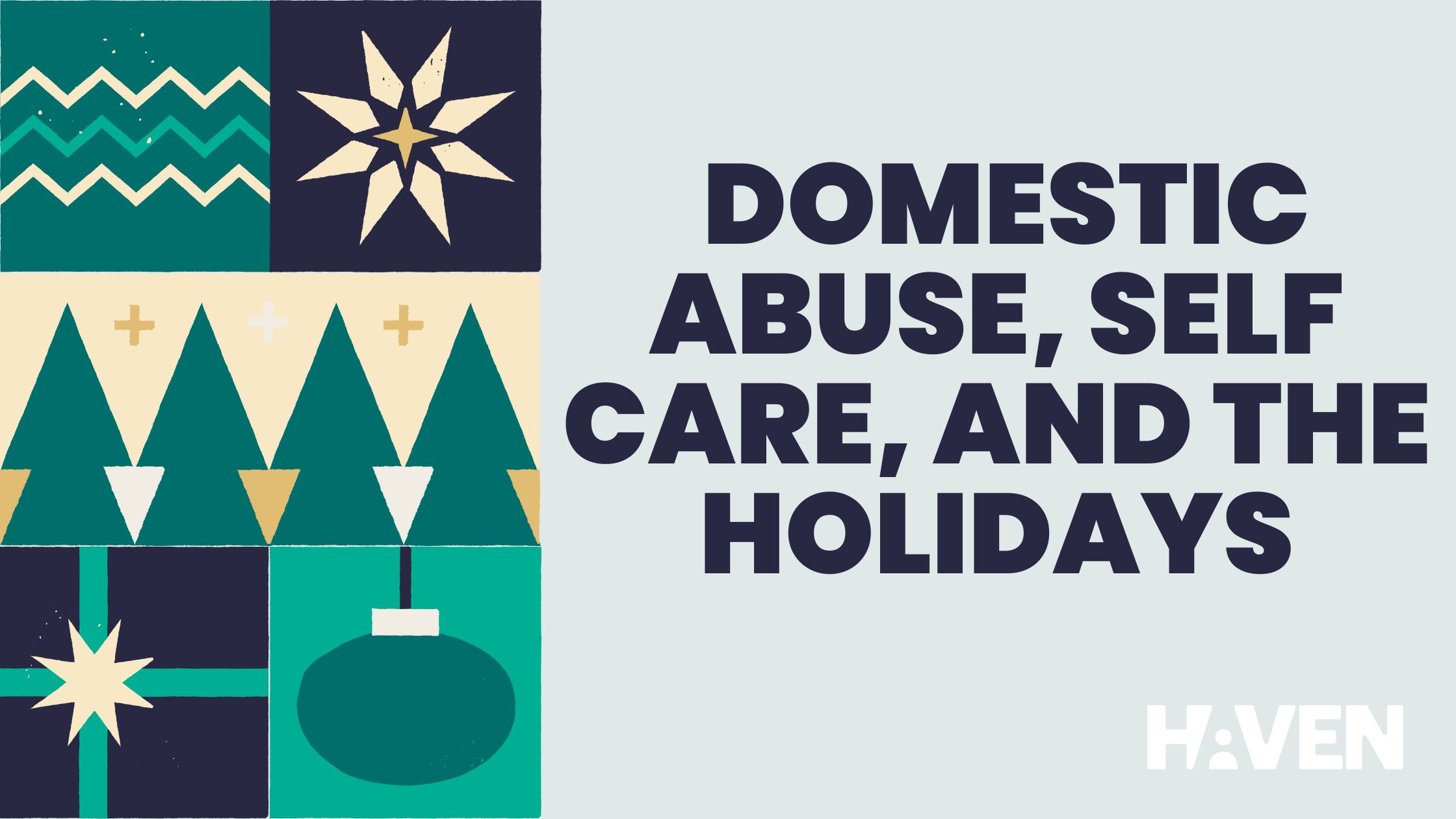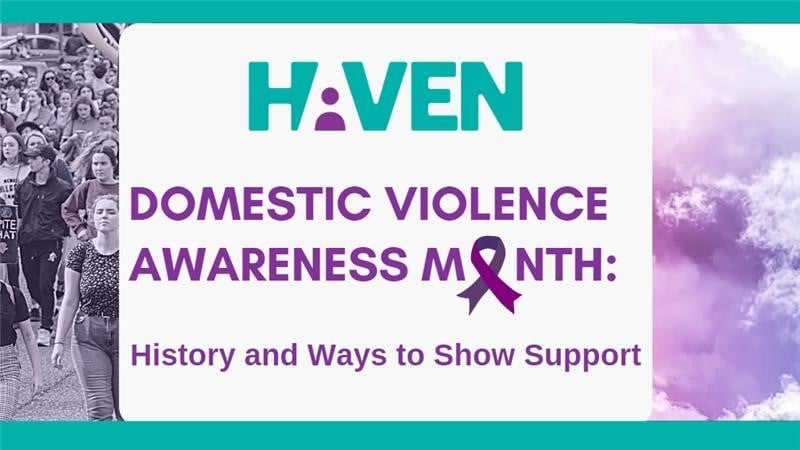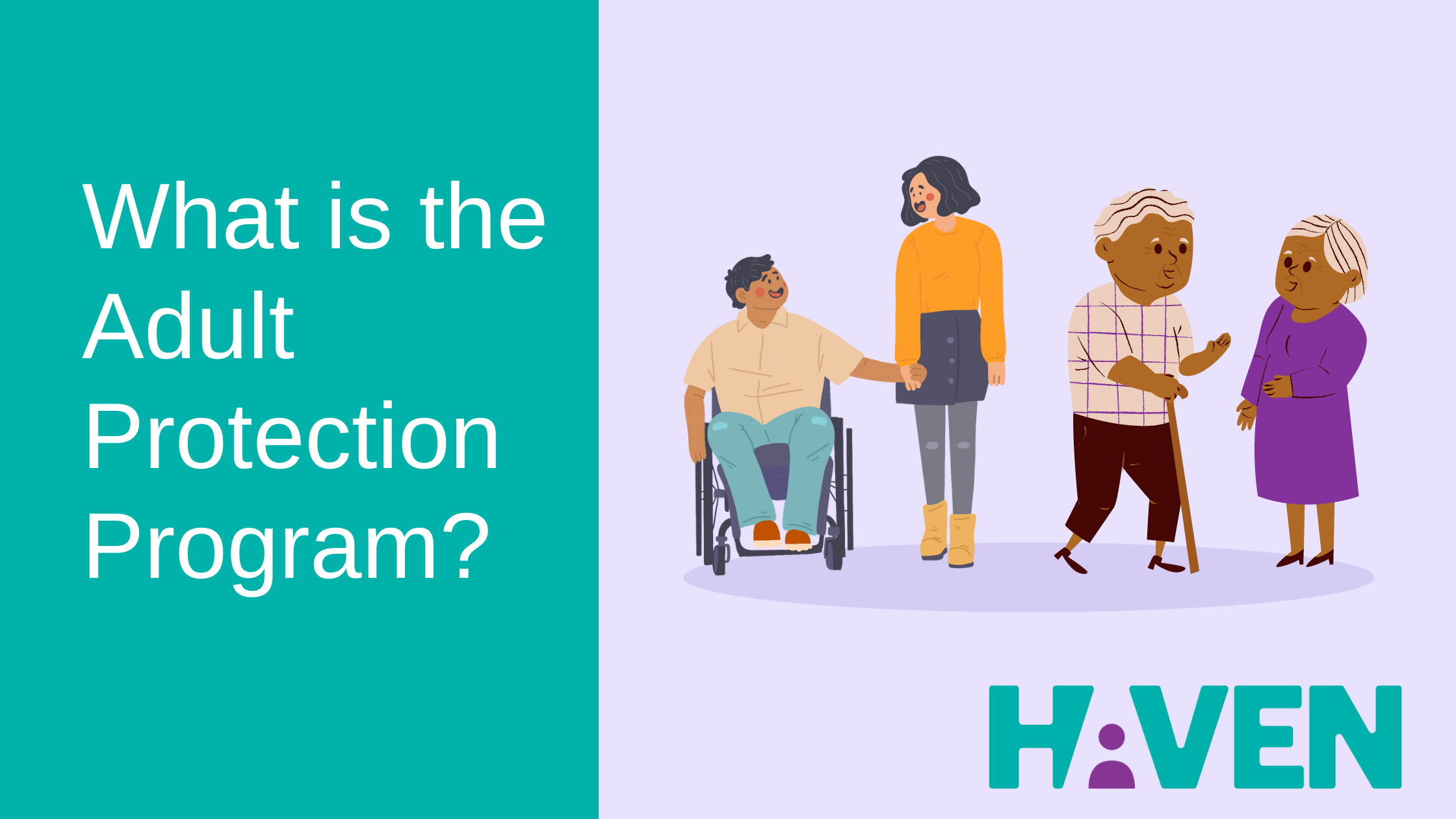
What is the Adult Protective Program?
- hvadmin
- November 28, 2022
- BEAS / adult protective services / abuse / Supporting Survivors / adult protective program / female survivors / APP / bureau of adult services / Awareness Matters / child abuse / APS / domestic violence
- 0 Comments
Ask an Advocate: What is APP?
Note for readers, we will discuss the types, definitions, and warning signs of abuse that may potentially be triggering.
Most people have heard of CPS – Child Protective Services also known as DCYF (Division of Youth and Families) in New Hampshire. These services are integral to keeping children safe and healthy, as well as striving to help families who are struggling.
But what about adults? Elderly, people in nursing homes, and people with disabilities all need support and services aimed to protect them and their right to self-determination as well. APP – Adult Protective Program is a program run by BEAS (Bureau of Elderly and Adult Services) which works to ensure the safety of vulnerable adults by providing protection from abuse and exploitation.
This post is aimed at explaining types of abuse, when and how to use adult protective program, explore the prevalence of vulnerable adult abuse and exploitation, and warning signs to look out for. This blog will be exploring APP which protects vulnerable adults, therefore statistics may pertain to elder abuse or abuse of people with disabilities since they are all under the same protection with the status as a “vulnerable adult”.
Types of Abuse
In New Hampshire, Elder Abuse is defined by law (RSA 161-F) as any action or omission that results (or could result) in harm to a vulnerable adult (2017). Many adults are simultaneously experiencing more than one type of abuse. The most prevalent are as follows:

Abuse is defined as intentional, knowing, or reckless non-accidental, non-therapeutic bodily injury (ALTSA, 2022), pain, mental or emotional distress, or fear—including coercion and intimidation, and sexual assault (SAFV, 2022). Examples include but are not limited to slapping, pinching, choking, kicking, shoving, inappropriately using drugs or physical restraints, forcible feeding or withholding food, and making someone purposefully uncomfortable (e.g. removing blankets, turning heat off, etc.). Inappropriate and non-consensual touch, any sexual activity that the person lacks the capacity to consent to, and indecent exposure.
Exploitation is defined as “the unjust or improper use of another person or another person’s resources for one’s own profit or advantage, with or without the person’s consent” (SAFV, 2022). Exploitation can look like taking a vulnerable adult’s money or possessions, scamming or committing fraud, preventing the vulnerable adult from accessing their own money, benefits, or assets, arranging less care than is needed to save money to maximize inheritance, misuse of a power of attorney, deputy, appointee ship, or other legal authority (SCIE, 2020).
Neglect is defined as “through action or inaction, deprives a vulnerable adult of the care necessary to maintain the vulnerable adult’s physical or mental health” (ALTSA, 2022). For example, failing to provide or allow access to food, shelter, clothing, heating, stimulation and activity, personal or medical care, access to visitors, not taking account of individuals’ cultural, religious, or ethnic needs, ignoring educational needs, preventing access to glasses, hearing aids, dentures, etc., failure to ensure privacy and dignity (SCIE, 2020).
Self-Neglect “is the type of adult abuse most commonly reported. It occurs when an at-risk adult cannot or does not care appropriately for ” (DHHS, 2022). Examples include vulnerable adults living in hazardous, unsafe, or unsanitary living conditions; not having enough food or water; or neglecting to pay their own bills (ALTSA, 2022).
Abandonment “is the desertion of a vulnerable adult by a caregiver” without the ability to get food, clothing, shelter, or medical care (SAFV, 2022). This could look like leaving a vulnerable adult in a public place without a means to get home, or leaving them home without the means or ability to obtain basic survival necessities (ALTSA, 2022).
Who is Eligible?
Although “Adult Protective Program” may sound like it’s for any NH person over the age of 18, the APP is meant for people who the state considers vulnerable. A vulnerable adult is defined by RSA 161-F:43: “’Vulnerable’ means that the physical, mental, or emotional ability of a person is such that he or she is unable to manage personal, home, or financial affairs in his or her own best interest, or he or she is unable to act or unable to delegate responsibility to a responsible caretaker or caregiver” (2017). Another way to think about it is if the individual has a guardian or another person appointed to make legal decisions for them.
The APP can only get involved when the situation is concerning a vulnerable person. However, it is also their job to investigate whether or not that person can be considered vulnerable, so even if they do not have a legal guardian but there are concerns for neglect or self-neglect it’s always better to reach out rather than risk something dangerous occurring. If you’re concerned about a friend or neighbor being potentially abused, but not sure if it would be something the APP can support, you can call HAVEN for support at 603-994-SAFE.
It’s estimated that around two-thirds of those abusing or exploiting a vulnerable adult are family members, often the victim’s spouse or adult child
(Sitkans, 2022)
How do I make a report?
Reporting to APP or BEAS is similar to DCYF in that they have their own toll-free line. However, unlike DCYF it is not staffed 24/7. You can contact BEAS from 8:00 to 4:30 PM Monday through Friday at (800) 949-0470 or (603) 271-7014. If the person you are concerned about lives in a residential facility or nursing home you can call the Long Term Care Ombudsman at (800) 442-5640 or (603) 271-4375. Your report can be anonymous and it will not fall under your responsibility to investigate any further. For information on services for people with vision or hearing loss call 1-800-351-1888 x 8352 for accessibility services. If you need support, you can set up an appointment with a HAVEN advocate and make the report together. Call 603-994-SAFE to speak with a HAVEN advocate about your concerns.
If there are immediate concerns for someone’s safety and it is after hours, a weekend, or a holiday call 911.
Importantly, every adult in New Hampshire is a mandated reporter. This means if you suspect abuse/assault of a child or vulnerable adult you are required by law to report it.
Prevalence of Abuse of Vulnerable Adults
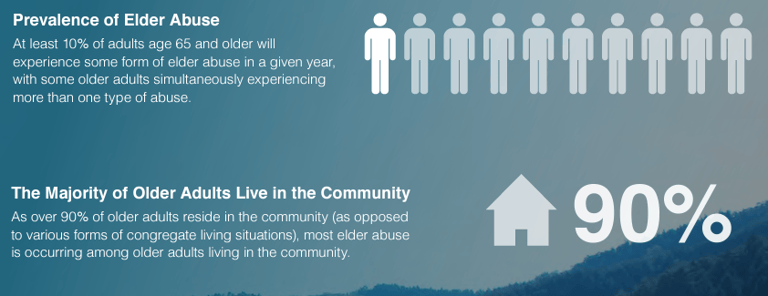

Vulnerable adults who have been abused have a “300% higher risk of death” when compared to those who have not (NCOA, 2021). Abuse of vulnerable adults robs these individuals of their dignity, safety, and in some cases—their lives. One study estimated for every one case that is brought to the authorities, 23 cases of abuse go unreported (Storey, 2020).
Warning Signs
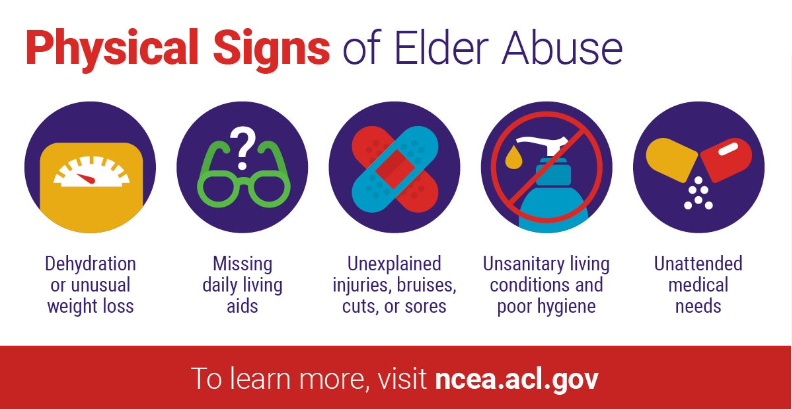
Physical signs of abuse: bruises, pressure marks, broken bones, abrasions, burns, sudden change in behavior, and/or a caregiver’s refusal to allow visitors to see a vulnerable adult alone (ALTSA, 2022).
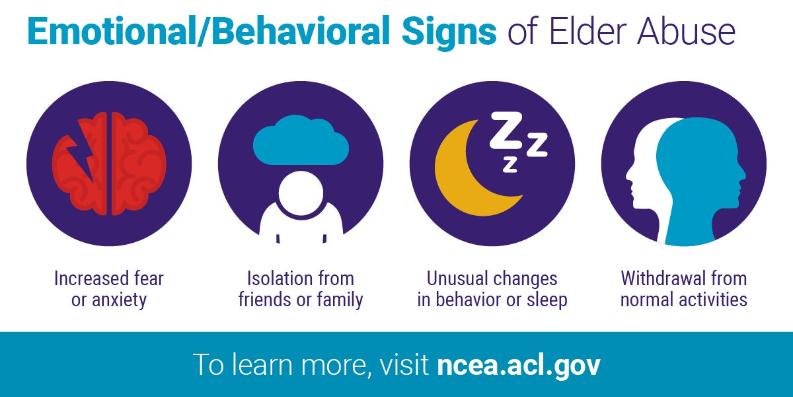
Emotional Abuse: Sudden or unexplained withdrawal from normal activities or hobbies, inexplicably noncommunicative or non-responsive, sudden change in alertness, abnormal depression, strained/tense relationships, frequent arguments between the caregiver and older adult, abnormal agitation, nervousness around certain people, report of being verbally or mentally mistreated (ALTSA, 2022).
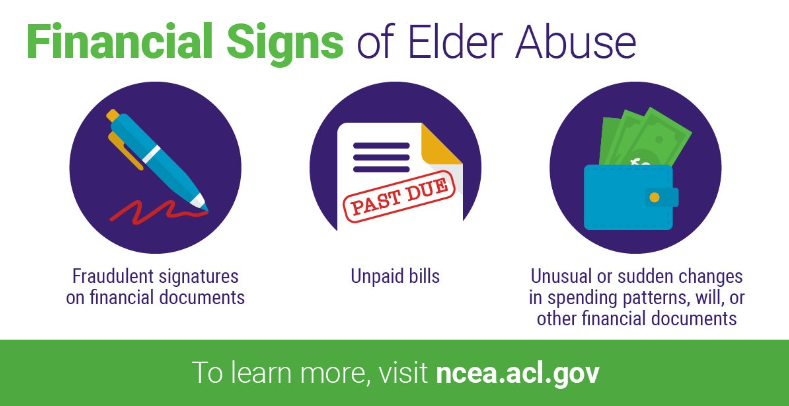
Financial Abuse: Sudden changes in financial situation, sudden changes in bank account or banking practice, adding additional names on bank signature cards, bills unpaid despite the money being available to pay them, sudden appearance of previously uninvolved relatives claiming rights to a vulnerable adult’s possessions, providing services that are not necessary, individual’s report of exploitation or financial abuse (ALTSA, 2022).
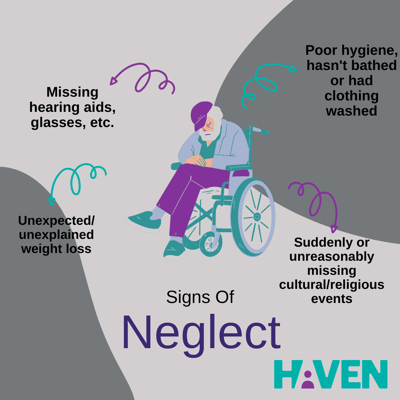
Neglect: Dehydration, malnutrition, untreated bed sores, poor hygiene, unattended/untreated health problems, unsafe living conditions (e.g. no heat, running water, etc.), and unsanitary living conditions (ALTSA, 2022).
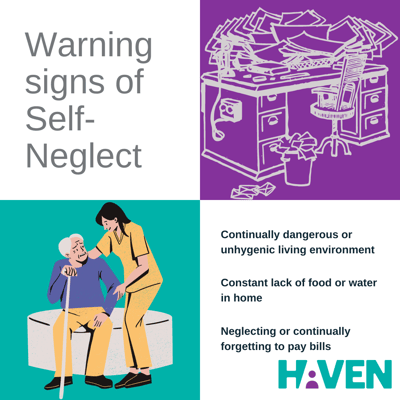
Self-Neglect: Dehydration, malnutrition, untreated bed sores, poor hygiene, unattended/untreated health problems, not taking medications, unsafe living conditions (e.g. no heat, running water, etc.), inadequate housing or homelessness, and unsanitary living conditions (ALTSA, 2022).
If you or someone you know suspect a vulnerable adult is being abused you can contact BEAS from 8:00 to 4:30 PM Monday through Friday at (800) 949-0470 or (603) 271-7014. If the person you are concerned about lives in a residential facility or nursing home you can call the Long Term Care Ombudsman at (800) 442-5640 or (603) 271-4375. Your report can be anonymous and it will not fall under your responsibility to investigate any further. For information on services for people with vision or hearing loss call 1-800-351-1888 x 8352 for accessibility services.
HAVEN offers support, information, and access to area support to anyone impacted by abuse and can support you if you wish to report. Survivors can access HAVEN advocates 24 hours a day, seven days a week, for support through our hotline 1 (603) 994-SAFE . Not comfortable using the phone? We also now have a “chat with an advocate” via our website where during our office hours, Monday-Friday, 9 AM – 4 PM, you can use an instant messaging feature to talk with an advocate at https://havennh.org/! Reach out at any time. We are here to help.
![Image Description: two hands holding a purple ribbon with text on the side. Alt text: You are not alone. HAVEN can help. Free, confidential 24-hr support 603-994-SAFE[7233]. Safety planning; in-person support at court, hospitals, and police departments; online chat support M-F 9-5 via havennh.org; shelter & housing; support groups](https://havennh.org/hs-fs/hubfs/Imported_Blog_Media/HAVENcanhelp-2.jpg?width=400&height=336&name=HAVENcanhelp-2.jpg)
References
Aging and Long-Term Support Administration. (2022). Types and signs of abuse. DSHS. Retrieved from https://www.dshs.wa.gov/altsa/home-and-community-services/types-and-signs-abuse#physical
DHHS. (2022). Abuse Hurts At Any Age. Concord, NH; BEAS.
DOJ. (2017). Rural_and_tribal_statistics_and_research.PDF. The United States Department of Justice. Retrieved from https://www.justice.gov/file/1098056
Dubin, J. W. (2022, October 21). How to recognize abuse in older adults. AgingInPlace.org. Retrieved from https://aginginplace.org/finance-legal/guide-to-recognizing-elder-abuse/
National Council on Aging (NCOA). (2021). Physical Signs of Elder Abuse. image.
NH Rev Stat § 161-F:43 (2017)
SAFV. (2022). Vulnerable adult abuse. Sitkans Against Family Violence. Retrieved from https://www.safv.org/vulnerable-adult-abuse
SCIE. (2020, December 1). Safeguarding adults: Types and indicators of abuse. Social Care Institute for Excellence (SCIE). Retrieved from https://www.scie.org.uk/safeguarding/adults/introduction/types-and-indicators-of-abuse#physical
Storey, J. E. (2020). Risk factors for elder abuse and neglect: A review of the literature. Aggression and Violent Behavior, 50, 101339.
